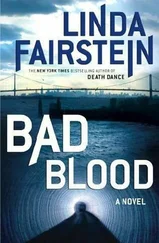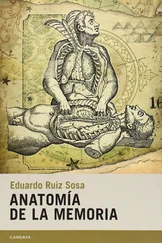Of course, Grandma didn’t yet know about MB. Once on the bicycle, on the byways of the parish, he was off her mental map. And in any case from Hilda’s point of view MB was only one of a set of local ladies who had taken doting possession of their new vicar during his first lone weeks. Chief among them was widowed Lady Kenyon, who was (it turns out) the real head of the Hanmer community, and outshone the eponymous Hanmers in both rank and wealth. The diary records that he was frequently chauffeured around in her car, and that he was regularly invited up to Gredington, the comfortable Kenyon pile, for tea and for dinner tête-à-tête. Then there’s Miss Crewe – the headmistress of the parish school – and her friend Miss Kitchin, who ran the bakery and doubled as the church organist. Miss Crewe, too, owned a car, which Miss Kitchin drove, and they gave him lifts to Chester, Shrewsbury, Oswestry and so on, and more invitations to tea. He was, it seems, God’s gift to all the grander single women of the parish. It must quickly have become apparent to these new female friends that he and Hilda were a most ill-matched and disaffected couple. She hadn’t the health, inclination or the social background to play the role of the vicar’s wife. And this unhappy fact must have added to his air of availability for them all, and particularly for MB.
She called shortly after the family’s arrival and walked Hilda to the church ‘for the first time’ (as the diary records, possibly with irony). Instead of cooling down, their affair intensifies: ‘Went to Tallarn Green … met MB. A lovely day altogether’ (19 September). He is hardly ever in his new vicarage and often eats supper or goes to play cards with the people at the lodgings he stayed in when he first arrived in the village, where MB often drops by, too. And very soon this family – the Watsons, who keep the shop – are in on the secret. As the autumn closes in, and the weather gets wet and foggy, his double life keeps him idyllically busy. Official parish duties even promise fun, too: ‘Went to the meeting at the Parish Hall for entertainments … there will be quite a lot to do at Hanmer as time goes on.’ Although the pace occasionally gets hard to sustain, it seems, for on Saturday, 7 October he reverts to the old ploy of hiding in his study and pretending he’s elsewhere: ‘Decided to be away all day so as to have a quiet day.’
It’s the day the clocks go back. He finds himself pausing for reflection and – for the first time – misgivings. Has he been led down the garden path? ‘Thank thee O God for hearing my prayer to get a removal from Llwynypia. But I wish I could have removed to some other parish in S. Wales instead of coming up to the north.’ Or perhaps he isn’t as smitten as he first thought, for the entry ends enigmatically, ‘My heart is in the south.’ But the very next day he goes to the Watsons after evensong, where he meets MB and ‘stays late’. There’s a gratifyingly ‘huge crowd’ at church for Harvest Festival a week later and he’s able to rest on his laurels, since MB is going away for a short holiday. And then, suddenly, just as he relaxes, there comes a stroke of fate that whisks away the very means of his freedom.
In other words, he had an accident on the bike. He was speeding alone down the dark lanes between services when he came a cropper – ‘tore the cartilage of my leg. Laid up at Pritchards’ farm. Dr McColl set my leg and brought me home,’ he writes, staccato style with clenched teeth: immobilised, grounded, trapped in the vicarage. That dawns on him gradually. By Wednesday the leg ‘is far from getting right’, on Thursday the doctor calls and tells him he won’t be fit for his duties on Sunday and things start to look serious. Lady Kenyon sends a pair of crutches. And MB, who is after all the district nurse, returns from her holiday to find him in the new position of patient – flat on his back.
She knows just what to do. She bustles into the vicarage armed with her professional innocence. Now their assignations take place in his bedroom . On 1 November she calls and stays till midnight. ‘Am feeling very tired,’ he tells the diary before falling asleep. MB is tenderly solicitous. She gives him a ‘dental pipe’ as a present, plus tobacco, and a walking stick ‘for me to get about’. Except that she doesn’t seem to be leaving him much time or energy for hobbling out of the house. The diary is dominated by her home visits. After about ten days, when the level of intensive care must have been starting to look a bit excessive, a new and magical word turns up: massage. The leg is on the mend, but needs daily massage. Bliss, you might think, to be in her capable hands. The accident has turned out to be a blessing in disguise, now that the weather is foul and the nights are drawing in.
But reading between the lines – which are getting pretty repetitious, there’s massage and more massage – he’s not altogether enjoying this domesticated transgression. For instance, there is an interesting double-take in the entry for 16 November: ‘The nurse (MB) came in the morning and gave me another massage.’ On the eighteenth he’s ‘rather depressed … shall be glad when my leg is well enough to get about’. On the twenty-third the massage leads to ‘a long serious talk with MB all the morning’. On the twenty-fifth he strikes a querulous note: ‘ Have to be massaged in the afternoon’ (my italics, but his resentment, surely?). It’s not just the nights that are closing in. Perhaps in some perverse way it’s almost a relief when at last on 27 November Grandma, who has been distracted (presumably) by homesick dreams of the Rhondda, wakes up to what’s going on.
There’s a huge row. ‘Hilda in tantrums.’ No more massage sessions with MB. He goes to see the bone-setter at Church Stretton and the leg is soon cured. Not so the ache of passion. There are more long, serious talks (‘It is a very miserable position for MB’) and more rows with Hilda – ‘Heart-breaking in this country silence,’ he says, suddenly, dazedly, missing the background hum of traffic, the life of noise in South Wales. Still, he’s out and about again, and there has been a gratifying flurry of invitations, including one to the Hanmers’ house, Bettisfield Park, for late supper (leading to a ‘thumping’ hangover the next morning). He keeps away from the vicarage as much as possible and sees MB at the Watsons’, as he did before the accident. Things have changed, of course, the complications he dreaded have materialised. On 9 December he swears her a sinner’s oath on the Bible – promising to stay faithfully unfaithful. Thick fog blankets Hanmer and some days he is stuck at home. ‘Had to sit in the kitchen through perpetual bothering and misery,’ he writes on 19 December. ‘Don’t know what is going to come of this.’ Even when he contrives to stay out all hours, Grandma – already an insomniac – is quite capable of raging till dawn: ‘Spent a most awful night with Hilda again. Up the whole of this night and in deep misery about everything.’ He notes grimly that the Watsons have called the vet to put their dog out of its misery. He was no animal lover, obviously he envied the brute.
This misery was of an altogether different order from the old dull depression, however. This was live, vivid, mythic misery that marked the festive season with its own secret significance: ‘So the most notable Christmas of all has commenced.’ He was full of energy, absorbed and fascinated by the spectacle of his life. ‘How will all this end?’ he asked himself, clutching the edge of his seat. His feelings were volatile and contradictory. Certainly there were moments when he wanted to be free of MB. She had become a liability, another burden. And yet she still represented the lure of adventure. On 27 December he sent her a ‘letter of renunciation’ – ‘This is now the end.’ But the very next evening, when he went to church to collect his robes, ‘MB followed with a scene … a pathetic pleading night. I do not know what to make of all this. What a situation is now developing. Hilda begins her tantrums again about MB. So it goes on endlessly. Did not go to bed but remained in study all night long …’ As the year ends, and the diary too, he’s very attracted by the pull of an ending, but also by the opposite desire, for more intrigue, the plot to come. Rounding off 1933 he’s keeping his options open: ‘So ends a most memorable year for me. I have had the move I wished for to a lovely country church. Here I have met many most kind people. But I fear that the work will be too much for me. I have met MB too and therein hangs all the tale of the future. What will that be I wonder?? God knows since it is His doing that all this has come about. So then I commit the future to God.’ So MB was God’s idea.
Читать дальше












